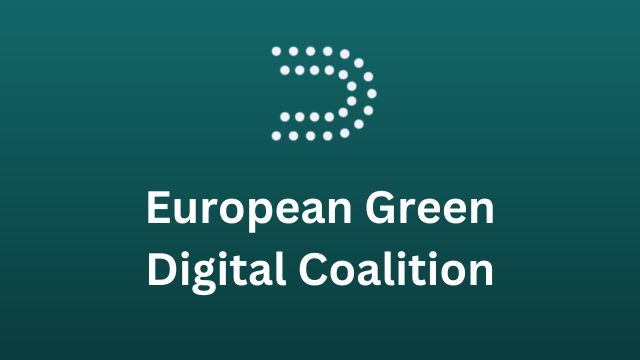|
Brussels, |
|
DIGITAL & SOCIETY
Green digital sector
The European Union sees the digital and green transitions as twin challenges, neither of which can succeed without the other. Europe's digital transformation can help reduce carbon footprint by replacing travel with videoconferencing and improving sustainability in farming, among other things.
However, digital technologies also account for 8-10% of energy consumption and 2-4% of greenhouse gas emissions.
To reduce digital's environmental impact, changes can be made such as extending the lifetime of smartphones, which can save 2.1 Mt CO2 per year by 2030, equivalent to removing 1 million cars from the roads. Switching from 4G to 5G networks can reduce energy consumption by up to 90%.
The EU is exploring voluntary and binding measures to make the private sector climate-neutral and to use more renewable resources, including the European Green Digital Coalition. The bloc aims to ensure that data centres become climate-neutral, energy-efficient, and sustainable by 2030 at the latest.
The EU will update existing laws and introduce new measures to achieve green and digital objectives for the next decade. In addition, the European Commission will revise the energy efficiency and environmental performance requirements for servers and storage equipment.
The EU is already taking action through its Digital Decade program, which aims to reduce barriers to public services and ensure they are accessible across borders while also promoting sustainable growth.
However, digital technologies also account for 8-10% of energy consumption and 2-4% of greenhouse gas emissions.
To reduce digital's environmental impact, changes can be made such as extending the lifetime of smartphones, which can save 2.1 Mt CO2 per year by 2030, equivalent to removing 1 million cars from the roads. Switching from 4G to 5G networks can reduce energy consumption by up to 90%.
The EU is exploring voluntary and binding measures to make the private sector climate-neutral and to use more renewable resources, including the European Green Digital Coalition. The bloc aims to ensure that data centres become climate-neutral, energy-efficient, and sustainable by 2030 at the latest.
The EU will update existing laws and introduce new measures to achieve green and digital objectives for the next decade. In addition, the European Commission will revise the energy efficiency and environmental performance requirements for servers and storage equipment.
The EU is already taking action through its Digital Decade program, which aims to reduce barriers to public services and ensure they are accessible across borders while also promoting sustainable growth.


